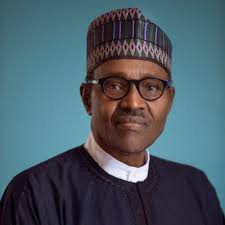Nigeria was on Sunday, July 13, 2025, thrown into national mourning when the former military Head of State and the country’s immediate past president, Muhammadu Buhari, passed on while receiving medical treatment at a London hospital, England. He was aged 82.
General Muhammadu Buhari had a successful military career; rising through all the military ranks and holding nearly all political and administrative offices until he capped it in December 1983 when he became a military head of state. Muhammadu Buhari’s 23 years of service in the Nigerian Army essentially shaped and defined his life. It was while in service that he acquired the reputation of an honest and straightforward officer who thrived on Spartan life and abhorred corruption.
The hallmark of a soldier is discipline, strong focus, integrity, loyalty, selfless commitment, courage, fearlessness and decency. As a soldier, Buhari wore these qualities as a badge of honour, retiring from the Nigerian Army as a major general on August 27, 1985; the day he was dethroned as Nigeria’s military head of state.
Before then, Buhari drew widespread public attention in March 1976 when he, then a colonel, was appointed by General Olusegun Obasanjo as the Federal Commissioner (Minister) for Petroleum and Natural Resources. In 1977, when the Nigerian National Petroleum Corporation (NNPC) was created, Buhari was appointed as its chairman, a position he held until 1978. During his tenure as the Federal Commissioner for Petroleum and Natural Resources, the government invested in pipelines and petroleum storage infrastructure. The government built about 21 petroleum storage depots all over the country from Lagos to Maiduguri and from Calabar to Gusau.
More than two and a half decades after the Petroleum Trust Fund (PTF), which Buhari headed was dissolved, it remains a reference point in matters of governance and the provision of quality interventions in various areas that directly touch on the lives of ordinary citizens including road and waterways rehabilitation; rehabilitation of classrooms, laboratories, hostels, lecture theatres, and provision of books and other learning materials. The PTF also had the mandate for the provision of health and water facilities and consumables, agricultural inputs and machinery, and the rehabilitation of the railway.
Buhari was an enduring epitome and legacy of rule of law. His War Against Indiscipline (WAI) programme in 1984 stemmed from his conviction that all of Nigeria’s problems boil down to just two things: the corruption of the elite and the indiscipline of the masses. WAI was one scheme that practically sought to bring back sanity into the unruly public and private lives lived by many Nigerians particularly under the democratic regime that preceded his coming to power as a military head of state. It’s natural for a man with the brand of integrity that characterised Buhari’s private and public life to detest and deal ruthlessly with every manifestation of indiscipline and corruption, however small or big.
As a presidential candidate in five consecutive general elections in Nigeria from 2003 to 2019, Buhari had consistently maintained that he did not want anyone to rig elections for him but that the electoral system should protect the integrity of all votes, his included. He is perhaps the only Nigerian politician ever to openly discourage his supporters from rigging elections on his behalf. That is a commitment to the rule of law like no other. Each time he had gone to court to challenge the results of the elections, often alone with just a handful of loyalists and all the way to the Supreme Court, he had done so with the belief that the law must be allowed to take its course.
In the 13 years of his long walk as a politician to the presidency of the Federal Republic of Nigeria, Buhari’s strongest weapon, which consistently placed him over his political opponents in all the presidential elections he featured as a candidate, was his uncommon integrity and the sincerity with which he demonstrated it.
He steadfastly remained faithful to his ideals and to his values of integrity and transparency throughout his life. Soon after hearing the news of his appointment as minister of petroleum resources, Buhari ordered that no kobo should henceforth be removed from government coffers in his name. He ordered that his personal car be disposed of and the money brought to him to meet up with his personal commitments. On his retirement from the Nigerian Army, General Buhari had only one personal vehicle, a Mercedes Benz car.
Although some far-fetched events involving some of his political appointees during his two terms tenure as Nigeria’s president attempted to bring his democratic leadership almost to a level of disrepute, the credit of being a man with a high sense of personal integrity cannot be taken away from him.
Besides receiving Nigeria’s highest honour of the Grand Commander of the Federal Republic (GCFR), Buhari is a recipient of national honours from foreign countries including Benin Republic, Equatorial Guinea, Guinea Bissau, Liberia, Niger, Portugal, Senegal, and Serbia. He held chieftaincy titles particularly from the south-eastern part of Nigeria including being the Enyioma I of Ebonyi and the Ochioha I of Igboland. Before then, he had been the Ogbuagu I of Igboland.
Muhammad Buhari would, for a long time, remain an African model for all descent societies. We pray that Allah grants him eternal mercy and rest; granting his family, relations, associates, and admirers the fortitude to bear the loss, amin.
Source – Daily Trust

